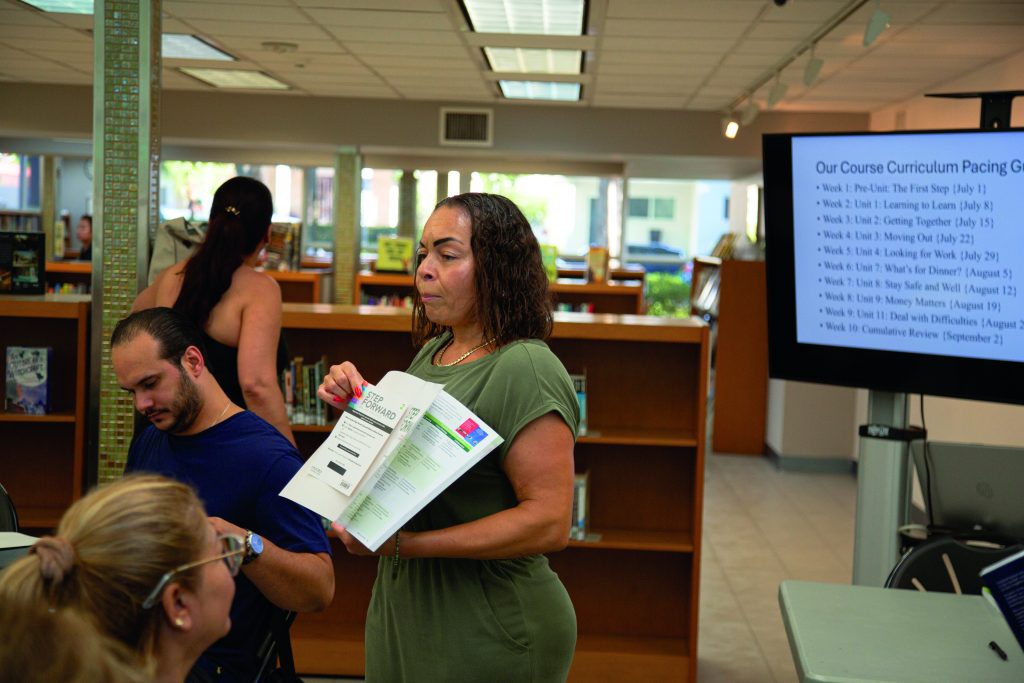Voting Literacy: Libraries offer training, classes on election issues
By Alexa Torrens
South Dade Senior High School/Montage
For voters who need help understanding campaign issues, candidate platforms and the hieroglyphics of ballot amendments, public libraries and voter education centers play a major – if not often overlooked – role.
“So much language in the election world is niche language that you wouldn’t encounter very often,” said Sean Johnson, who leads the Center for Civic Design’s Plain Language initiative. The center, based in New York City, works to make instructions in voting materials easier to find, understand and use for the general population.
“Even if you’re a very active and engaged voter, that’s a challenge, Johnson said. “There’s a lot of different steps just to get to vote.”

When Florida voters go to the polls in November, they will decide which candidates they want to hold office – from the president, to the city council members or commissioners. They also will decide six ballot amendments, the wording of which can be tricky, confusing and off-putting.
Election results have shown that when voters don’t understand the issues, the wording or even the candidates running for some politically obscure positions such as judicial races, they will skip the question or vote without proper understanding.
“That is a problem,” said Patrick Waldinger, co-director of debate at the University of Miami. “Education is important to any country, [as is] understanding the basics [of literacy] and being an engaged civic citizen who participates in politics.”
In an age of countless news articles with shaky degrees of truth, a grasp on reading and writing is essential for voters.
A 2019 U.S. Department of Education study determined that one in five eligible voters has insufficient literacy skills, which may lead to decreased voter confidence.
To bridge the gap, libraries, including the Shenandoah Branch Library, offer help. The library’s Adult Learning Academy offers free literacy classes. Over a 10- week course, attendees are taught to strengthen their skills in vocabulary, grammar and fluency.
“The goal of this course is to help people who already speak English to advance with their grammar, their pronunciation, and their every-day conversation, said instructor Tenecha Osorio. “And if you’re more fluent in English, you can speak to other people about politics and become well informed and may be more likely to vote.”
Beyond the benefits derived from basic literacy classes, Marisol Rodriguez, 16, a junior at John A. Ferguson Senior High School in Miami, said she would be interested in voting and registration materials in her school’s library to help her prepare for upcoming elections.
“It will be our first time voting, so it’s important to inform and teach us since we’ve never done it before,” Rodriguez said.